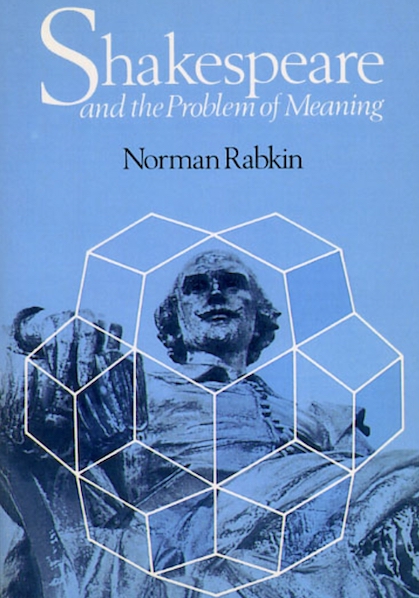Tuesday, August 24, 1971
IF THERE WERE ANY lingering doubts about the progressive thrust of the first World Shakespeare Congress, they were dispelled Monday afternoon [Aug. 23, 1971]. Delegates, hearing accepted methods of Shakespearean criticism frankly challenged, were largely positive in their response to a call for new approaches.
"Shakespeare criticism is in trouble," reported Norman Rabkin, professor of English at the University of California, Berkeley. "If we don't change our critical habits we are likely to betray Shakespeare as badly as did critics who wrote about the girlhood of his heroines."
Taking as his test The Merchant of Venice, Rabkin pointed out that critical assessments of the play's chief characters have run the course round. Shylock has been called everything from monster to martyr. Portia is seen by one writer as a romantic heroine, and by another as a cool, conniving feminist.
And, instead of facing the problems raised by their contradictions, "critics have justified their occupation by constructing strategies to evade the problems posed by divergent responses."
The real problem, according to Rabkin, is that critics have traditionally spent their time searching for meaning.
"Given a romantic inheritance, given a genuine sense of the integrity of a single poem or play or novel, given a puritanical bias which assumes that the value of literature is moral and familiarly expresses itself in the notion of the professor as lay preacher, given a long history of the assumption that art is valuable at least half because of what it teaches, and given an art which is verbal, so that virtually all the patterns, parallels, structural juxtapositions, image clusters, ironic repetitions, variations, and generic conventions a critic can find can be translated into other words, was it not inevitable that the bias toward a criticism that would produce discrete and rational arguments should culminate in the study of meaning?" he asked.
Inevitable or not, the result of the search for meaning, and meaningful patterns in art, has not proved satisfactory, as the many "meanings" in The Merchant of Venice show.
What is needed, said Rabkin, are new critical approaches, ones that will "treat experience as the subject of art." Citing the work of gestalt-inspired music critic Leonard Meyer, he said that the new criticism might well begin with an analysis of the complex relationship a work of art has with its audience.
Said Rabkin: "We need . . . to consider the play as a dynamic interaction between artist and audience, to learn to talk about the process of our involvement rather than our considered view after the aesthetic event."
Rabkin, 41, presented his paper, entitled Meaning and Shakespeare, to Congress delegates assembled at the Totem Park Conference Centre. The World Shakespeare Congress is being jointly sponsored by Simon Fraser University, the University of British Columbia and the Canada Council. Sessions of the week-long congress are being held on both campuses.
The above is a restored version of a Province feature report by Michael Walsh originally published in 1971. For additional information on this archived material, please visit my FAQ.
Afterword: Want to know more? The above item was my second report on the WSC. As a reporter aware of the old adage that journalism is the “first rough draft of history,” I knew that I could give my readers but a glimpse of the story. Fortunately, among the members of the congress was a scholar with the editorial skills to insure that the bigger picture would be permanently captured.
In 1972, the University of Toronto Press published the 298-page Shakespeare 1971: Proceedings of the World Shakespeare Congress Vancouver, August 1971.
Among them was Norman Rabkin’s Meaning and Shakespeare, the subject of the above report. Ten years later, the University of California, Berkeley professor expanded his observation that “Shakespeare criticism is in trouble" into book length, published as the readable 176-page Shakespeare and the Problem of Meaning.
Congressional record: Reeling Back’s WSC archive consists of a Preview feature followed by my Opening report, a Tuesday report, a Wednesday report, a Thursday report, a Friday report, a First Folio feature about a family with links to both Shakespeare and Vancouver, a Saturday report, a Closing report, and my Summary feature.
